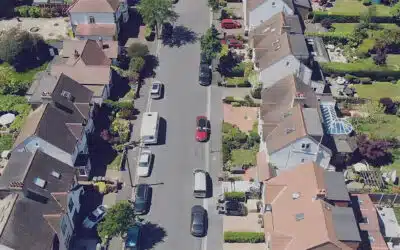Despite ongoing coverage of the shortage in available housing stock, there are reported to be 610,123 empty homes in England. Of these, 205,821 have been unoccupied for six months or more.
Although it sounds counterintuitive, investors who leave flats empty may in fact be well rewarded in the longer term. The costs of letting, including wear and tear and administration, can in some instances outweigh any money taken from rent. At the top end of the new-build market, many buyers pay a premium for unused apartments.
However, these so-called ‘buy-to-leave’ investments, primarily found in London, account for a small percentage of vacant properties. The vast majority of empty homes are unoccupied due to financial concerns.
A common reason that properties are empty is because the owner cannot raise funds to refurbish the property up to let it out, or sell. Further, if property is jointly inherited, it can take years for beneficiaries to decide what to do with it.
A study of government statistics for England shows that, overall, areas in the North tend to have a higher proportion of unused residential properties than those in the South.
In some areas entire streets are left empty due to areas becoming undesirable. The causes can be purely economic, such as industries closing down. A neighbourhood’s decline in reputation, such as when crime and vandalism are seen to rise, can also cause an exodus.
The National Housing Federation estimates 974,000 homes needed to be built between 2011 and 2014, but that figures from 326 councils showed only 457,490 were completed.
Housing shortages mean councils are trying to address the empty homes issue and create much-needed stock. English councils can charge owners 50% extra in council tax if they leave properties empty for two or more years. Another power is a compulsory purchase order, applicable only if officials can show they have tried to encourage the owner to bring a building back to ‘acceptable’ use.
In 2006 the government brought in Empty Dwelling Management Orders (EMDOs), allowing local authorities in England to take over the management of some residential properties that had been empty for at least six months and where there was ‘no reasonable expectation’ of them being occupied in the near future.
The Department for Communities and Local Government says the number of empty homes is now “at its lowest since records began” and that more than 100,000 long-term empty properties have been brought back into use since 2010.
This is not legal advice; it is intended to provide information of general interest about current legal issues.
If you are considering buying or selling a property anywhere in England or Wales and would like to receive a full breakdown of all known legal cost, please contact our New Business Team on 01245 343980 or newbusiness@gepp.co.uk



